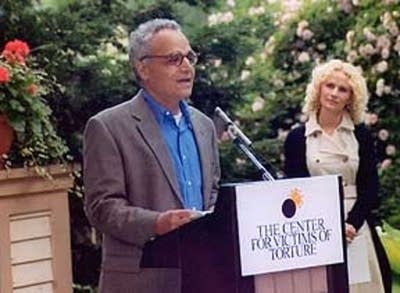Looking for a sound bite to explain a mass murder?

By Ahmed Tharwat
"What first came to your mind when you heard the news of the shooting in Texas?" came the interviewer's sympathetic voice over the phone. "What do you think was Major Nidal Hasan's real motive?"
I never met Nidal Hasan, the Army psychiatrist who allegedly opened fire on his fellow soldiers at Fort Hood, Texas, killing 13 and wounding more than 30. I have no standing to speculate on Nidal's state of mind. It is absurd to suppose that an Egyptian Muslim has any special insight into the thoughts of an American Muslim major in the U.S. Army.
But if it's a chance to get on the FOX Network, OK.
Create a More Connected Minnesota
MPR News is your trusted resource for the news you need. With your support, MPR News brings accessible, courageous journalism and authentic conversation to everyone - free of paywalls and barriers. Your gift makes a difference.
Major Hasan's real motive has been going through my mind ever since he attacked his comrades. He had a hidden motive, as do all American Muslims, that he acquired at birth and carried as a burden all his life: the call for "jihad" that started nagging him once he was given the name Nidal -- which means jihad or political struggle in Arabic.
This is the story you wanted, right? There's more where that came from.
As I was saying, Nidal's name summarized his life, his struggle for identity and his quest to learn who he really is. This name was given to him, as is customary in the Arab/Muslim culture, by his parents. They had lived under the Israeli occupation for years before moving to the United States. He struggled with the name all his life, which was devoid of real love, family or friends -- a lonesome life for a lonely man because of his ethnicity and religion, teased frequently by his peers and friends, whose trust he never gained.
His name never allowed him to brush his past aside and forget. Everywhere he went, people called him "Nidal," "Nidal," "Nidal." A constant reminder of what was required of him.
Did he think that after naming him "Nidal," his parents expected him to listen to other people's struggles and forget his own? Nidal, who never risked anything in his life, who made all the right decisions, the easy decisions, and became a doctor? Nidal, whose parents made sure he would always remember their suffering in Palestine through occupation and humiliation?
Every evening as a child he listened to bedtime stories about the Palestinian suffering and Muslim victimhood. He looked at pictures of Palestinian children -- I have this on good authority; all of us Muslims got the memo -- their faces full of anguish and fear, a reminder that whispered to him at night to never forget. His bedroom had no picture of a tree, a bird or even a naked woman to comfort him at night when no one was looking. He absorbed images of his people's demise and suffering like a thick sponge immersed in dirty water.
And now, as a grown military man, he had to hear all those terrible, tragic stories of what was happening to his Muslim brothers all over the world. They added salt to his wounds.
Imagine the burden of an American Muslim psychiatrist who on a daily basis helped Americans with their tortured souls, but never really came to terms with his own.
"Nidal," "Nidal," "Nidal." Every time he heard his own name, he asked himself about the real Nidal, the real struggle. This unfulfilled, unremarkable man, who had never before taken a risk, with one outrageous action found a way to turn his ordinary miserable life into an extraordinary infamous one.
He must have heard strange voices in his head asking him to pull the trigger, and when he did so, he knew that the virgins were waiting for him in paradise.
Remember, I never met him. But I'm a fellow Muslim, after all, and this is the story you wanted to hear. Think of it as the Muslim man's burden.
Ahmed Tharwat, Minnetonka, is host of the Arab American TV show "BelAhdan."
